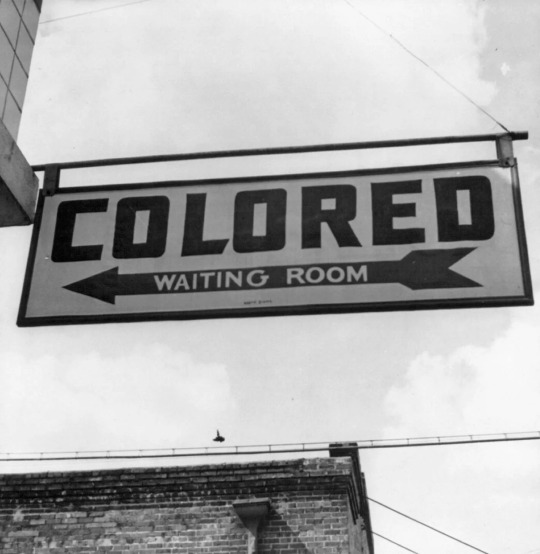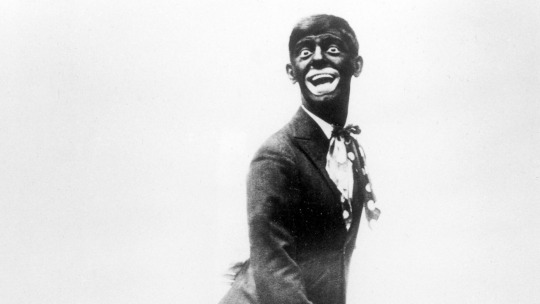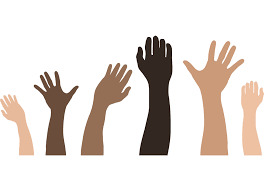Text
Chapter 10 Fieldwork
I would like to include a brief explanation of each hypothesis as a useful reminder.
Martin Marx The bourgeoisie, often known as the capitalist class, is one of only two social classes. These folks are essentially the owners and bosses of all production equipment. The proletariat, commonly referred to as the working class, is the second class. Due to their lack of ownership of any land, resources, or "capital," this class of people performs all of the labor and is entirely dependent on the work they produce. Any labor surplus results in a capital surplus, which supports the laborers' way of life.
Maximum Weber Weber added to Marx's theory by stating that "power and prestige" are important factors to consider when determining a person's place in society, noting that "reputation, influence, and deference" were accorded to those in power because of their "membership" within particular social circles. Weber thought that persons from the same social class had the same "life chances" and potential for the same possibilities, but he also thought that this wasn't just a coincidence because the state was controlling things in a biased way. Jacques Bourdieu Your social standing is something that you control.
Yale News writes on "infrastructure inequality" and how it "prevents sustainable urbanization" in an article from April 14, 2022. The essay begins by examining the distribution of infrastructures inside "South Africa and India" and how those countries' "high levels of urbanization and socioeconomic disparities" correspond to those infrastructures. With cases like India in particular, where the social class consists of a sizable working class to capitalist class ratio with very little representation of any in between, I think this immediately aligns nicely with Karl Marx's thesis. Following that, the essay studies many necessities like "tap water, sanitation, housing, and electricity," as well as light pollution because many high-level infrastructure areas have lights (street lights, house lights, building lights, etc.). The article continues by stating that areas lacking these fundamental criteria are vulnerable to bias, which results in a lack of focus on those areas. The author uses the example of a cup where one cup is fully filled and all the other cups are empty to illustrate how filling the other cups would require a modest amount of liquid from the fully filled cup rather than taking "much longer" to fill all the other cups completely. Marx's theory that without putting in, you gain nothing but in the sense that the people can only rely on the greater cup to empty out and fill their own cups from its own rather than merely filling this SCREAMS Marx to me. fill the cups with their personal water. This is a reference to the fact that capital for laborers exclusively comes from capitalists.
There may be income caps for the FAFSA, according to a Fox News report from March 8, 2022 (which has no association with Fox News OR their opinions, political agendas, or motivations). For those who may not be aware, the Free Application for Federal Student Aid, or FAFSA, is a document that individuals who wish to continue their education must complete in order to apply to various educational institutions (such as colleges, universities, cosmetology schools, etc.). This form "helps determine whether you qualify for federal financial aid" by notifying the school of your household's details, including household income, household dependents, tax returns, etc. The article claims that "there are no FAFSA income limits" and that fafsa provides a wide range of possibilities, including grants, scholarships, work-study programs, need-based aid, and merit-based aid. However, individually, from one person with no money to another (and anyone else reading), Fafsa also provides loans. What on God's lush, voluble Earth do I seem to be taking out a loan for? When do I not have any money? It Makes no sense at all. Not at all. They catch you that way. In any case, this is very relevant to Max Weber since, despite the fact that FAFSA does not appear to have an income cap, many students whose parents may make a specific amount as a household receive less money or nothing at all, other than the promise of a loan. Let's assume that my parents both expect to earn $50,000 apiece. That puts our household at 100k which shows to the Gov. that, according to the Washington Post https://www.washingtonpost.com/news/wonk/wp/2017/10/25/is-100000-middle-class-in-america/ we stand to be middle class, even pushing upper middle class.However, I have three siblings, healthcare expenses that my parents are covering, any outstanding school loan debt, and two different car loans. I'm not a mathematician, but the average annual expense of a college in the United States can be between $27,000 and $35,000. https://www.businessinsider.com/personal-finance/average-college-tuition and that's already 70% of a parent's income (play the Friday lawn chair clip for the same reason). Not to add that the middle class starts at $53,000. Making $50,000, you MIGHT be able to afford a house. https://themortgagereports.com/22502/how-to-buy-a-home-50000-per-year-income but only if the homes cost between 180,000 and 300,000 dollars. Unfortunately for you, the average price of single-family homes in the United States is presently 363,800 dollars (as of FEB 2022). https://fred.stlouisfed.org/series/HSFMEDUSM052N). In other words, unless your circumstances are ideal, you CANNOT afford a home. These are all ideal instances of people in their respective groups being available to comparable chances but the state exerting control over the outcomes of those opportunities.
The disparity in education within the English public system is covered in this article. The educational system claims that nearly every child receives a fair and equitable education, yet this is untrue. It examines how students who attend public schools, where the majority are typically from poorer socioeconomic backgrounds, do not have access to the same opportunities as students who attend private or higher-level public schools. Most of those are kids from a higher social level. Their grasp of what they are taught is expanded and deepened, and even the teachers' enthusiasm is different. Higher social class pupils are more likely to have instructors who actually care about their students' learning and comprehension of the subject. This supports Bourdieu's theory because he talks about the connection between class and power and how maintaining the status quo in terms of education for people in higher social classes will result in the transmission of class position from one generation to the next.
1 note
·
View note
Text
Chapter 13 Fieldwork
Migration: The Bridges And Barriers
We shall review an earlier issue, immigration, in this section. We will discuss their general experiences as well as any help or obstructions that helped them get where they are now.
I'd like to provide some background information about the interviewee before we begin today's vlog: age 18, male, Abidemi Musa.
Abidemi recently turned 18 and is a man. Abidemi was reared in Nigeria despite being an Irishman at birth. When Abidemi was fourteen, his parents informed him that they were moving to Canada and gave them a week to prepare. He told me that while there were other alternatives, Canada was the greatest one because no one else in the family had Irish citizenship. I did inquire about the possibilities, and he said that there were three: the United States, Canada, and Ireland. Since Canada and the U.S. are neighbors, I questioned why not the U.S., and he said that it was because of gun violence. The family remained in a hotel after arriving with the aid of immigration officers. He said he didn't know where these immigration officers were located when asked. Due to the fact that many of the stories I've heard about immigration bridges come from relatives or close friends who were aware of your arrival and were able to piece things together, I was very interested in these agents. Obtaining "used cheap cars" and affordable, "reliable" accommodation was another service provided by the immigration agents.
Push and Pulls
He told me that the three main factors that led his parents to desire to leave Nigeria were lack of employment, "worthless degrees," and a "bad economy." Now, I realize some of you might be as shocked by "worthless degrees" as I was, but he told me that while you might be able to work in Nigeria with a degree to become, say, a doctor, you won't be taken seriously in other nations even if you have a Ph.D. Consider how people perceive someone who attended an ivy league school against someone who attended a college that is less well-known; more than likely, the individual with the ivy league school would be more alluring. This was an extraordinarily huge push for his parents. Education and employment also served as pull factors. His parents wanted him to be in the right environment so he could get highly regarded degrees and well-paying jobs.
Bridges and Barriers
As was previously indicated, the immigration officers served as crucial bridges in assisting the Abidemi family in getting the things they required as soon as possible to kickstart their life and create a foundation. The "Nigerian connections" Abidemi parents were aware of and exposed served as another link. Abidemi described them as being approachable, straightforward, and informative on how the process was going to or would turn out to be. They provided them with details about the locality and people. On the other hand, adjusting to the new culture and accents was one of the challenges. Although Abidemi was born and raised in Nigeria, English is his mother tongue. He adjusted his speech, tone, and body language while still using "filler sounds," as I like to call them, even though he was speaking in English. Abidemi told me that because of the many dialects, people frequently found it difficult to understand what he was saying. In order to assimilate to Canadian speech, he also said that some behaviors Nigerians would engage in during conversation, such as sucking their teeth and caressing their necks, were not typical for the average Canadian.
Despite having spent the previous four years in Canada, he is not yet a citizen. He recently submitted an application for citizenship. He responded that the citizenship procedure is "strict but not very strict" and "definitely stricter than the U.S." when asked about it. The 3 years it takes to become a citizen.
Reflection
My conclusion is that immigration poses a serious threat to culture. Although that wasn't the main topic of this piece, the idea of having to alter my voice and body language in order to fit in makes me uncomfortable, particularly when it's obvious you're not one of them. In this modern age, where community isn't as prevalent as it once was to preserve culture, I think these obstacles are turning into threats.The fact that he has been living there for four years on a visa and must wait another three before becoming a citizen also makes me think that the citizenship process is a little stupid and has room for improvement. It's a very drawn-out process that doesn't always result in approval and, for some (many), puts them at risk of deportation. Immigration is a scary and uncertain process that demands enormous quantities of optimism, patience, and occasionally money.
0 notes
Text
CH. 6 Ethnicity and Nationalism
How long has your family lived in this country?
My maternal side of the family is originally from the Dominican Republic but my paternal side is African American. My mother and her mother are both from the United States.
Where did they come from?
They came from New York and resided in Harlem.
Has your family embraced American Nationalism?
I believe they have embraced American Nationalism. Both my grandmother and mother are from the United States and have been in the United States for longer than I have been alive. Although we share different cultures in my household, my family has been able to assimilate into the culture and nationalism America has to offer. In Harlem, the population’s demographic is primarily composed of Black and Hispanic/ Latino people and also a big part of this community is made up of immigrants. I would say this really helped my family embrace American nationalism in a way because they weren’t met and facing constant pushbacks by citizens or just locals that may have a different ethnic background to them and or are zenophobic towards them. Being around Hispanic and Latino Americans especially Afro-Latinos and Hispanics aided, in my opinion, in being able to relate to people with the same or similar cultural background while also assimilating and learning American norms and embracing American nationalism.
If some of your family have migrated from other parts of the world, how do they integrate their American identity with their ethnic identity?
My uncle was born in the Dominican Republic and moved to The United States at 16. He tells me that when he came to The United States, he didn't know how to speak english and for this, they bullied him often. He used songs and movies to learn English and a lot of the first words he picked up on were curse words from his peers in high school. Integrating his ethnic identity and his American identity was “pretty easy” because he came at a young age and was able to pick up on a lot of trends and pop culture norms of the youth. Coming at a young age also gave him the opportunity to grow up as an American adult rather than having to relearn what is acceptable and unacceptable as an adult in America.
0 notes
Text

Father, Rodney Lowe: Family owned business. One of two sons to Yvonne and Larry Lowe. Uncle, Derrick Lowe: Played professional football graduated from UCONN. Mother, Katrina Rosa: Registered nurse, Nj Real Estate Agent. Aunt, Cymara Burns: Registered nurse. Husband, Uncle Malcolm: works for Jet Blue Airways. Uncle Troy James: Career Father caring for Autistic Child cousins Tj. Aunt Claudia: Tj's mother works with special needs Adults. Tyson Lowe: Loving son to Katrina Rosa. Sister, Holley Lowe: Goes to school in Elizabeth Nj, also in the 12th grade. She plans on going to a HBCU. Brother, Derrick Lowe: has a child on the way and already has a son named Logan. Parallel cousins, Marvel: my baby cousin, just made 5 yrs last week. Cross cousins, Tj: little cousin with autism. And this is my family Tree.
0 notes
Text
Chapter #5 Fieldwork:
white supremacy - this is an example of white supremacy because the sign is exuding other people based on the the color of their skin. They aren’t accepting any other races into their community. White supremacy is the belief a that whites think they’re above other all races.

Hypo descent - In a phenomenon known as hypo descent people categorize biracial individuals belonging more to minority racial categories than to majority ones. For example Barack Obama was described as black man despite common knowledge that his mother is White. Hypo decent are children racially mixed unions to the lower rank groups.

Jim crow - Segregation of public schools public places and public transportation and the segregation of restrooms restaurants, and drinking fountains for whites and blacks. The u.s. military was also segregated. Mainly is the south after the end of slavery days.

nativism - An example of nativism is someone who will only date people who were born in the united states. nativism is the favoring of people born in a particular place over those who moved there.

Individual racism - This form of racism can be intentional or unintentional examples include telling a racist joke believing in the inherent superiority of white people crossing the street to avoid passing a black man. Individual racism refers to an individuals racist assumptions beliefs or behaviors and is a form of racial discrimination.

race - a person's self-identification with one or more social groups. an individual can report as white black or African American , asian American, Indian and Alaska native, native Hawaiian and other pacific islander or some other race. When Someone asks what race you are, it means a flawed system of classification with no biological basis you come from.

#https://www.mtsu.edu/first-amendment/article/1105/cross-burning#https://www.britannica.com/event/Jim-Crow-law#https://pages.vassar.edu/passingbeyondpassing/hypodescent-the-one-drop-rule/#https://globalboston.bc.edu/index.php/nativism-and-racism/#https://www.aclrc.com/forms-of-racism
1 note
·
View note
Text
Key dynamics of globalization
international migration - International migration probably will increase during the next decades because migration drivers, including economic pressures, changing age structures.
Flexible Accumulation - the emergence of flexible accumulation helped to produce an economic boom in the mid-1980s throughout most Western countries.


1 note
·
View note

